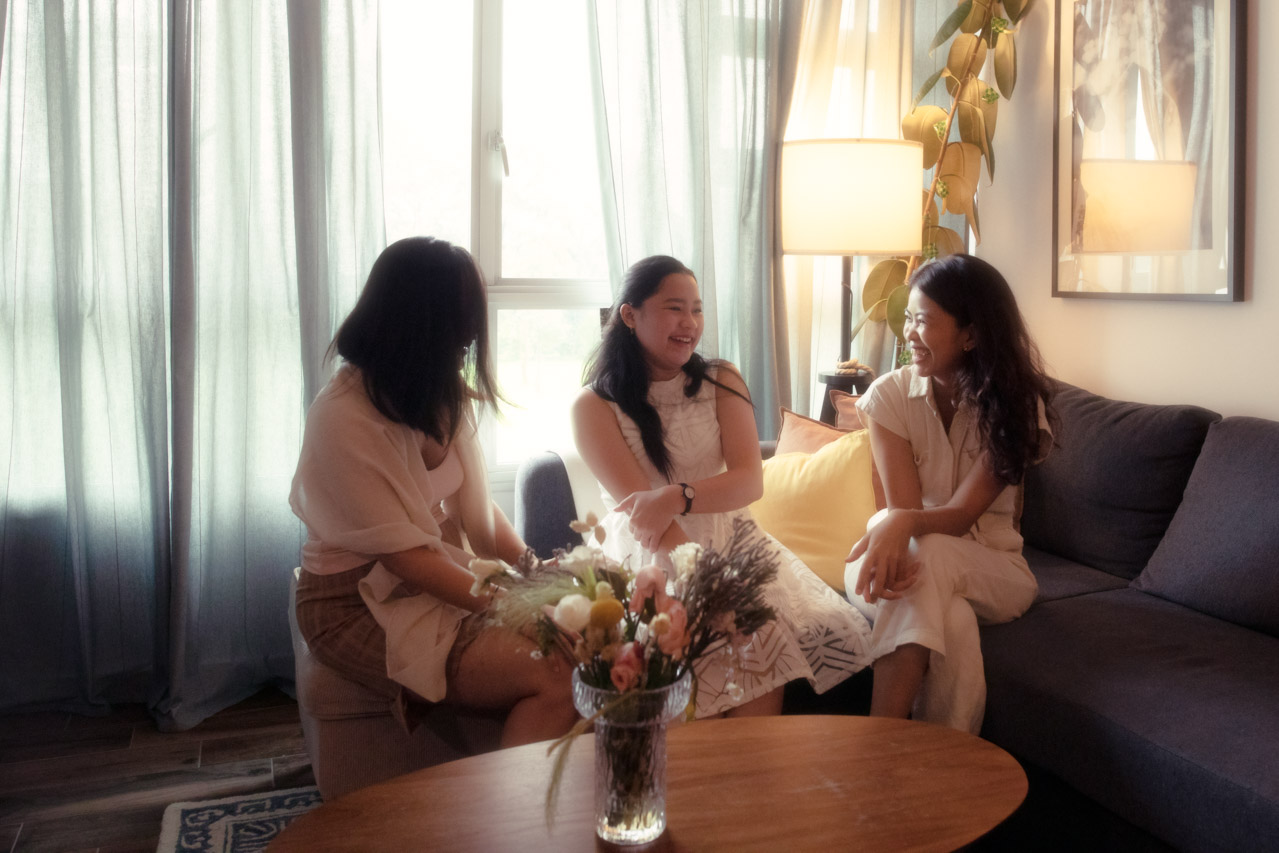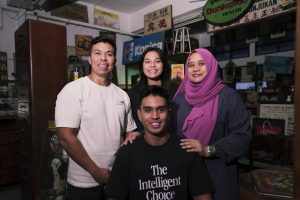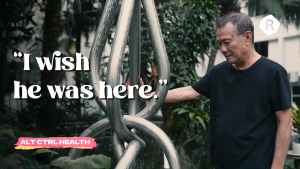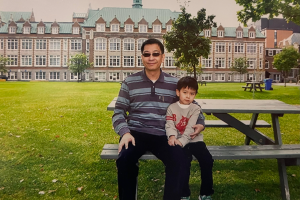All photos by Benita Leong for RICE Media.
There are only a few types of people I know, for certain, who are undisputedly confident in themselves: angry boomers wading in the Facebook comment section muck, shady finance bros, and Elon Musk. Everyone else has a healthy level of self-doubt and self-criticism.
That feeling of not being good enough can go away, either with time or practice. But there are parts of your life where neither can help ease the crippling self-doubt—like being a mother.
Even after nine months of arduous bodily transformation–having their internal organs crushed against their spine–of intensive reading and preparation, and of building mental fortitude, most mothers can still come out of it thinking they’re not befitting. Not for their children, their family or society.
It’s easy for me to say to be kind to yourself. I’m not a mother. Technically, it’s not my place to say it either. So instead, I asked these three mothers about their journey towards seeing themselves as good enough.
Duty Calls, But From Where?

Iffa Khalissa’s return to work last April was nothing like what pop culture’s #girlboss infatuation suggests. It wasn’t even anything like how it used to be before she took her leave.
Iffa, 30, is a determined, career-driven, and self-described workaholic. Plunging herself eyebrows-deep into work was just par for the course. However, with her child as her main priority, Iffa found it difficult to be present enough in her work environment.
Her to-do list was never-ending–there were clients to settle, assets to prepare, a team to manage and multiple vendors to talk to. Yet, there’d often be times when she would apologise to her team for needing to drop work, sometimes for days, for emergency childcare leaves.
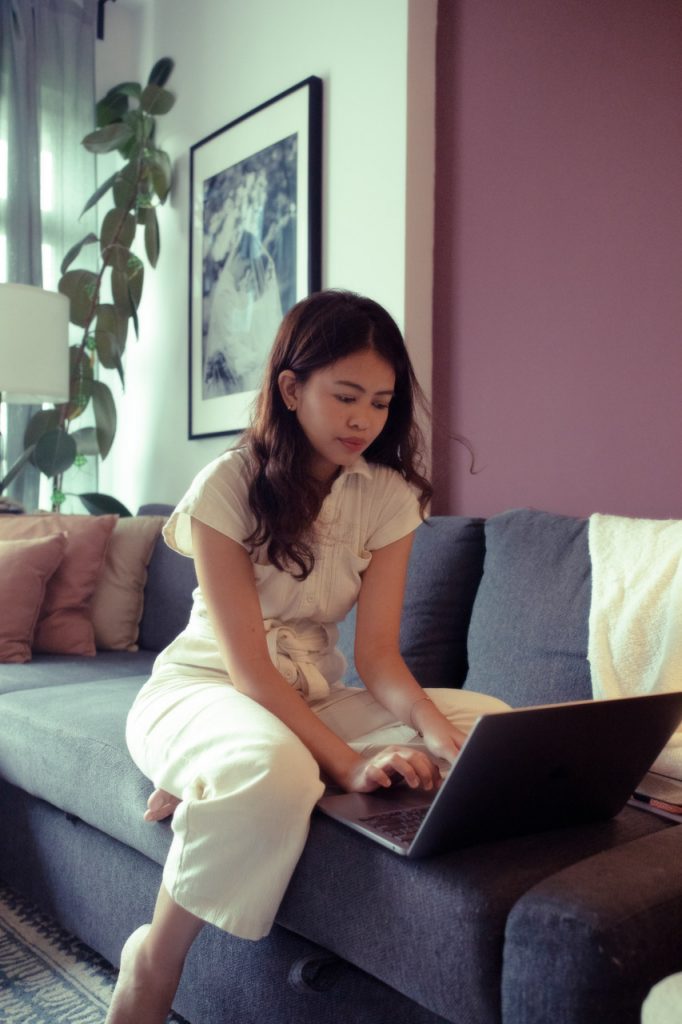
Iffa could tell her colleagues were trying their best to be polite and understanding, but deep down she knew her new responsibilities were placing an extra burden on them.
She had gone from spearheading the team to being their Achilles heel. The guilt of letting them down permeated into her personal life. Even as she held her child in her arms, her mind would unravel about work deadlines and the colleagues that needed her the most.
A career woman and a mother—she wanted to be both, but, at this point, she didn’t feel good enough to be either.
Iffa’s baby was growing. She didn’t want to reach a point where losing time with her child was normal.
Leaving her job for a new, more laid-back work life wasn’t an easy decision to make. After all, she’d been a tenacious career woman for so long, but ultimately it was a decision she believed was best for her family. Handing in that resignation letter felt like a huge load off of her shoulders, and when we met, she had already filled a corner of her living room with fresh flowers—her new venture, she says all smiles, floral arrangements.
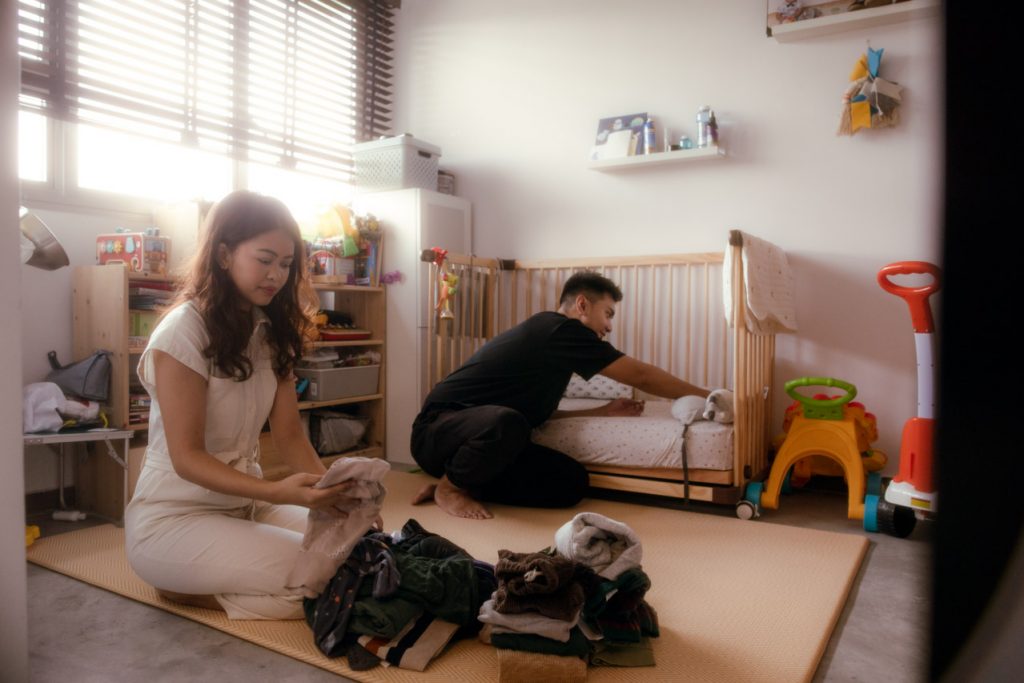
When asked if there was anything she wished she could tell herself from half a year ago, she pauses for a bit. “It’s cliche, but I hope you stay true to yourself. The decisions you make as a mother are what you know what’s best for you and your child.”
Scarred and Scars
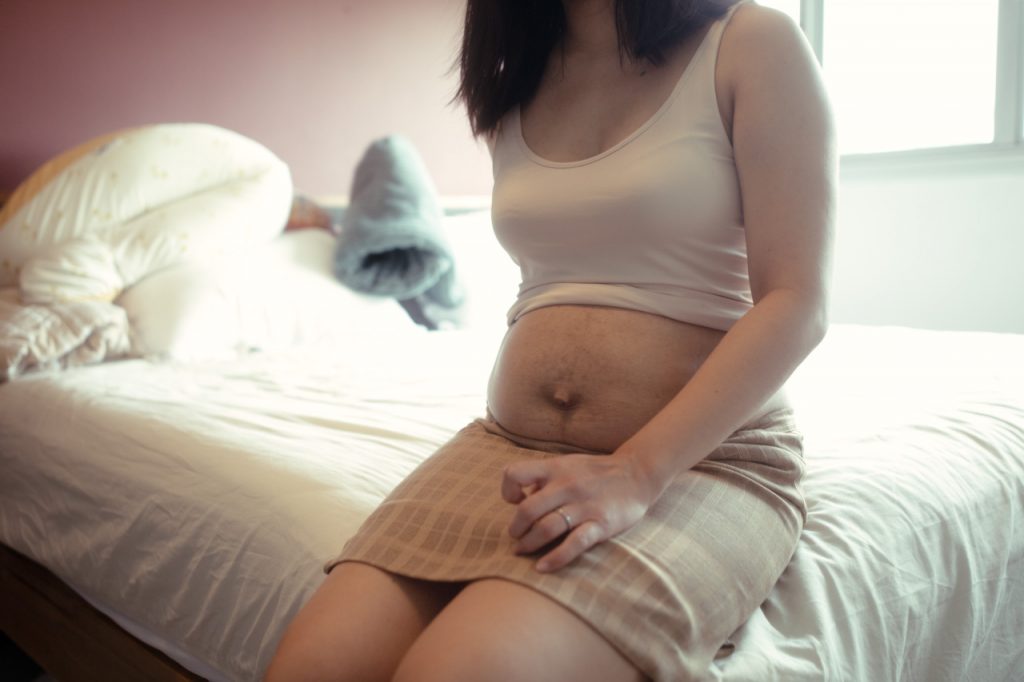
With a bulging midriff and an umbilical hernia, 35-year-old Tamara* doesn’t look like someone fresh off the birthing table. In fact, one of her friends congratulated her on her forthcoming second child.
To that, Tamara politely smiled. In actuality, the swell of her tummy is due to her abdominal walls having split right down the centre during pregnancy—like a zipper that had come undone. Diastasis recti (DR) is the name of this condition: the two sides of her abs are only held together by a precarious layer of skin. Apart from its physical effect, it also comes with potential health risks: incontinence, back pains, inguinal hernias or simply the threat of her abdominal walls splitting further.
Every day, Tamara looks at herself in the mirror. She still sees everything she went through—the trauma of an emergency C-section, the complicated feelings of seeing her body take pregnant shape, and the yearning for her body before all of this. For the past few months, she’s avoided posting any new photos of herself.
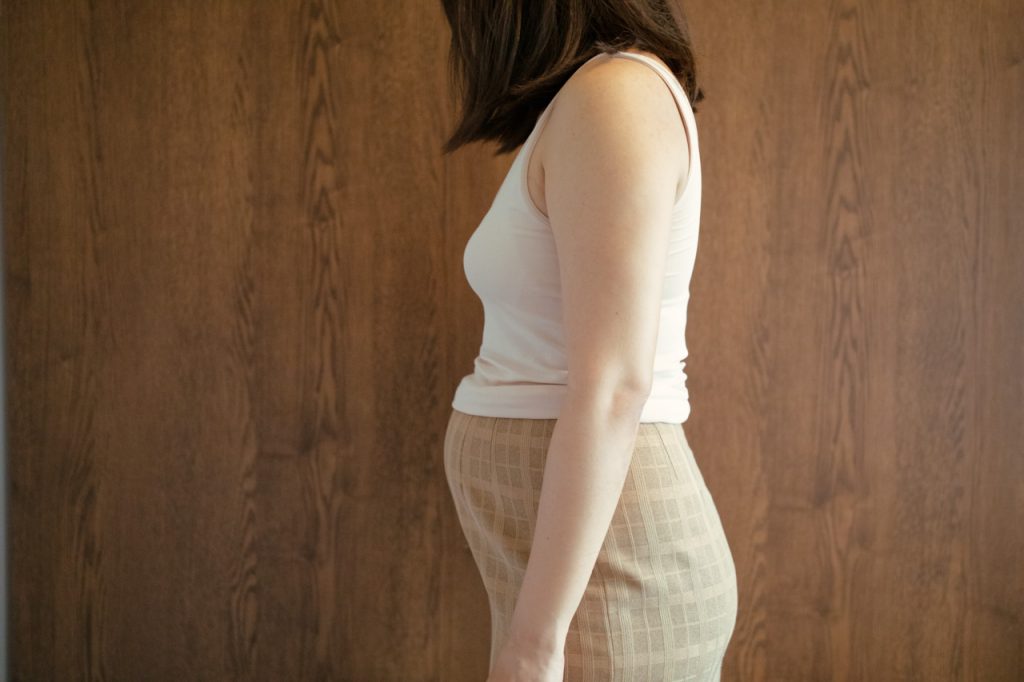
Prior to giving birth, she had done all her homework. She read up and prepared herself, anticipating a birthing experience as smooth as she could hope. Her child was smaller than average, which meant her risk of DR was much lower. The emergency C-section was unexpected. On all accords, it’s an experience traumatic enough on its own. She also didn’t expect to have DR. That loss of control is written across her torso, a constant reminder.
“I kind of blocked out everything that’s down there, y’know,” she admitted. “There are some days where I absolutely hate what I see in the mirror. A part of me constantly questions ‘Was it really worth it?’ I still don’t know, I haven’t accepted that this is how I’ll permanently look like.”
Having once subscribed to a lifestyle best defined as #fitspo, it’s been hard to grapple with comments that she’s “let herself go”. The comments were especially hurtful coming from relatives, none of whom had nary a clue what she was going through. It just wasn’t that simple. To add to her plate, breastfeeding meant she needed enough nutrients to provide for her child. Dieting was the last thing on her mind.
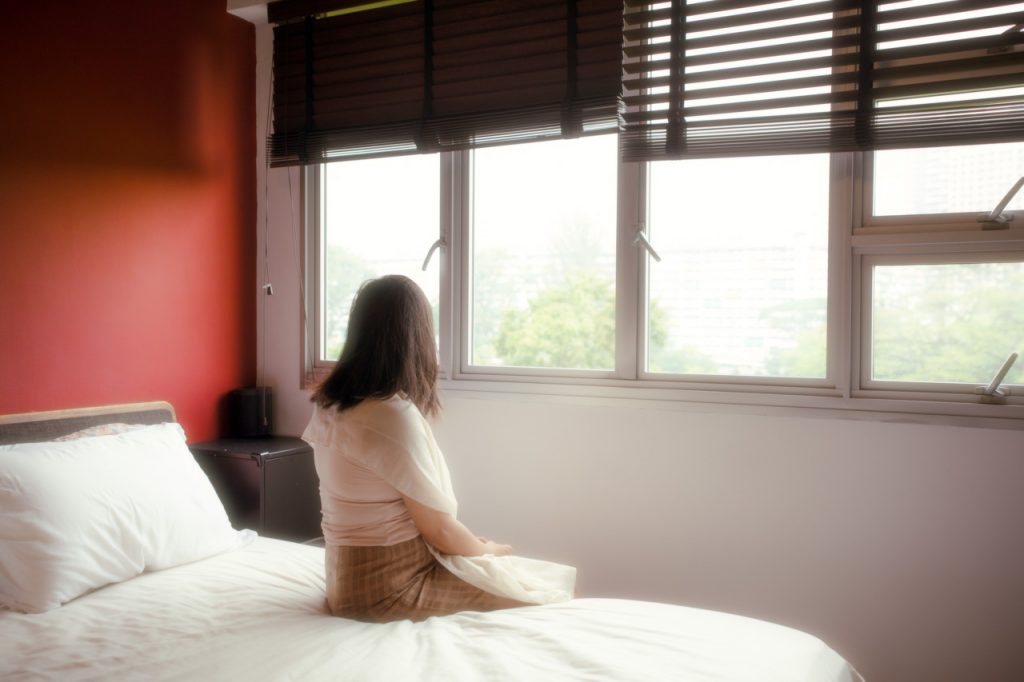
As it is, Tamara currently seeks women’s health physiotherapy to treat her DR. She has yet to toss out the pre-pregnancy clothes she hopes to wear. And despite her body image insecurities, she’s bravely kept the post-partum photos of herself—even if they’re not for posting—as a way for her to document her journey.
Somewhere in the middle of the call, or perhaps the moment she agreed to take on this interview, Tamara expressed acceptance of her body, in whatever form she may be. It’s clear when she tells me: Body neutrality over body positivity.
“It’s okay to not be okay with how your body looks. You don’t have to be okay with it immediately. It doesn’t matter how long you take to be okay with it: your body doesn’t make you any less of a mother.”
The Liquid Gold Squeeze
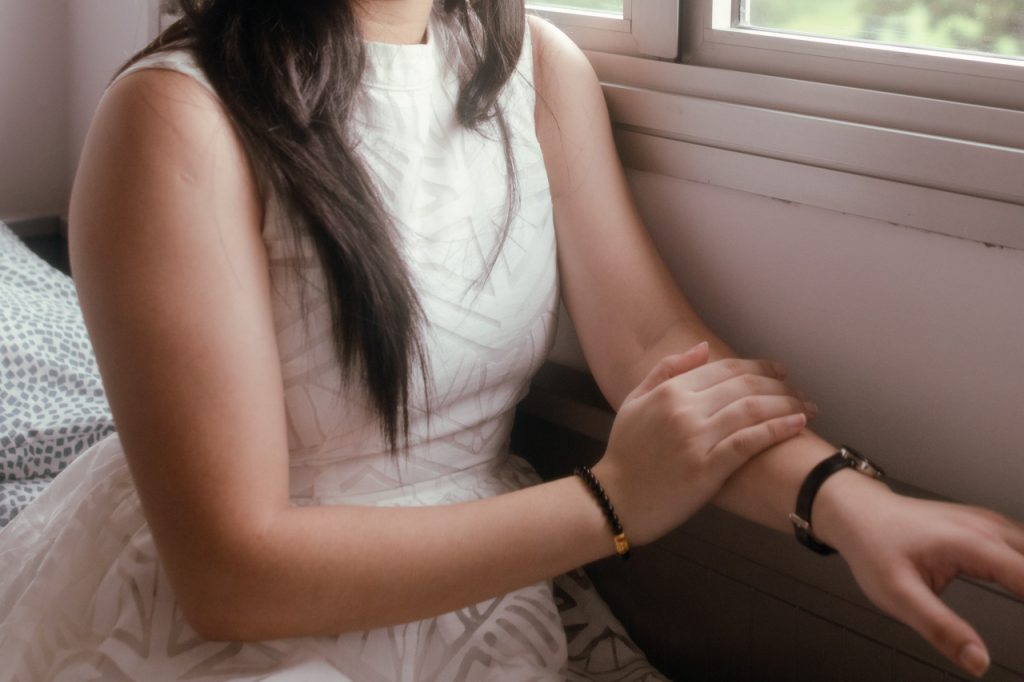
The ability of mothers to breastfeed is commonly assumed to be a given. It’s no surprise that, despite evidence that not all mums have that ability, there are new mothers who still see it as essential to motherhood–the belief that they should be able to provide milk for their child.
This was what weighed Carmel Estacio down when she gave birth to her first son, at age 19. Right off the bat, she struggled to feed her baby. There was no one there in the Philippines to guide her through the process.
Despite already lactating during her pregnancy, there wasn’t much she could do as she watched her supply dry up within three months. Whenever he cried, her grandmother-in-law would swoop in with a bottle of formula instead, essentially replacing her.
Try she did, to latch him every single time he cried. But the number of times he managed to get milk out could be counted on one hand.


Three years have passed, but Carmel still struggles to articulate that period without fighting through fits of tears. Her best efforts at pumping resulted in a measly one ounce, just two tablespoons—far from what was necessary for nursing, and far from what social media moms seemed to glamourise.
After composing herself, Carmel confessed: “I couldn’t help but think my baby didn’t deserve a mother like me. Because I couldn’t breastfeed, it seemed like I wasn’t giving my best for my child, and that meant I wasn’t a good mother.”
“My mind kept telling me that I didn’t deserve help because I chose to be a mother at this age.”
A support circle ended up being the key that broke her out of her spiral. She and her husband later moved to Singapore to stay with his parents.
It was a major relief: she finally had a safe place to be, no one would berate her anymore, her parents-in-law made sure she felt validated, and her self-worth didn’t feel tied to her abilities to supply anymore.
Her child also now had a village to raise him–her mother-in-law would ask for recommendations for the best mothercare products from her social circles to support Carmel’s motherhood journey. The arsenal of products included essentials like Pigeon SofTouch™ Nursing Bottles, as well as cleaning essentials like liquid cleansers, cotton balls, q-tips and brushes from the same brand. Nothing but the best for her daughter-in-law, and nothing but the best for her grandson.
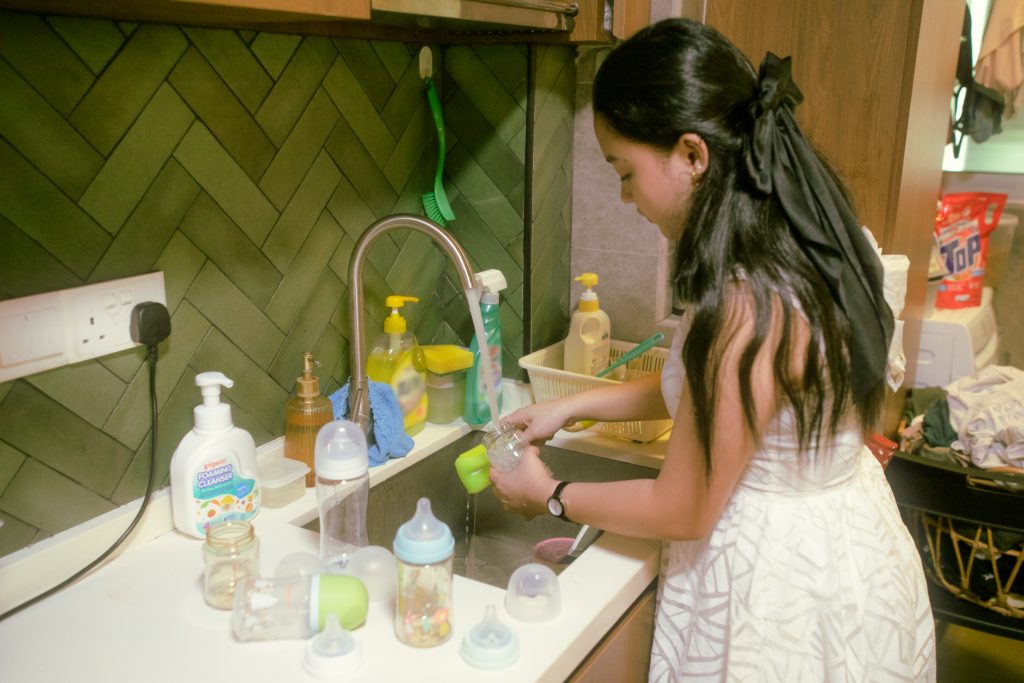
Their support helped her to embrace her second pregnancy. A relatively stress-free environment allowed her milk supply to return. Not only was she able to breastfeed her second-born, she even had enough to pump for her first child. Her second-born alternates between breast and bottle with ease thanks to the bottles’ soft teats, while her first-born has never been happier to get more milk in general.
Nonetheless, she was prepared for the possibility that she might not have been this fortunate, and this time was prepared to accept it.
Looking back, she now believes “not being able to breastfeed doesn’t mean you’re not good enough.”
“When you look at your child, you realise no one can or will be able to love them so wholeheartedly the way you do. You are enough.”
Good Enough
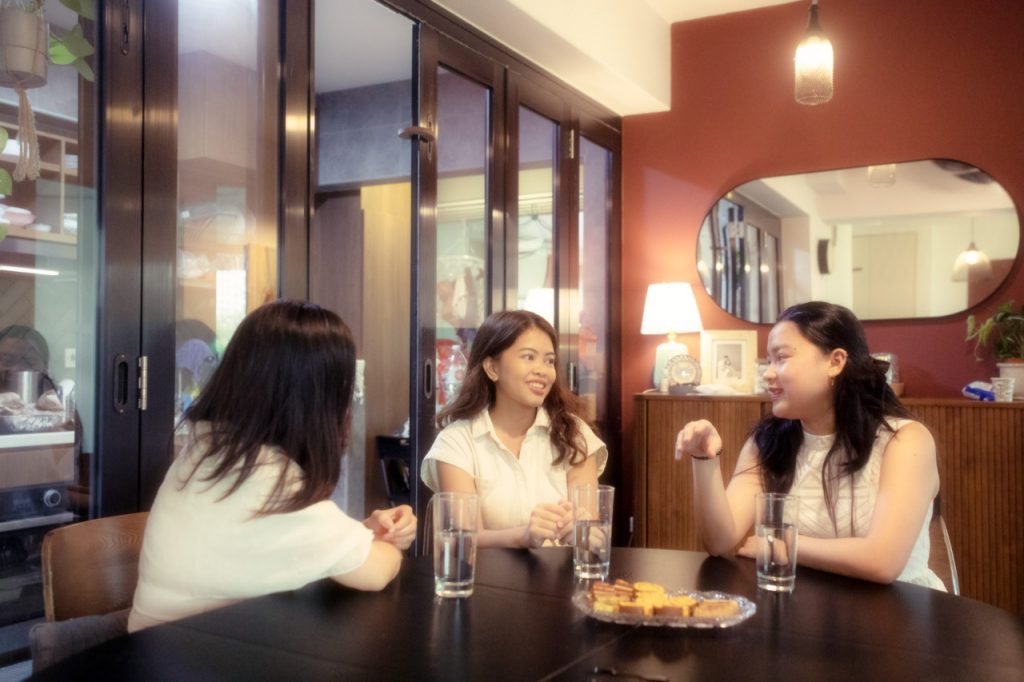
Motherhood can be so incredibly isolating, even among mothers themselves. No matter the similarities, every mother still goes through a uniquely different journey. But in a vacuum, it’s easy to fall into a pit of self-doubt against an arbitrary standard.
“Everything’s going to be okay. I wish someone told me that earlier on,” Iffa says. “It’s such a simple phrase, but it makes such a huge impact on a mother and her struggles.”
Carmel adds, “And at the end of the day, you’re the one that’s there for your child, that’s what matters. Your child will look back and know that you’ve always been there for them.
Sometimes, it just takes a little nudge from the people like you to remind yourself that you’re good enough as you are.

